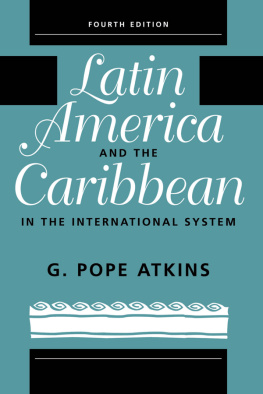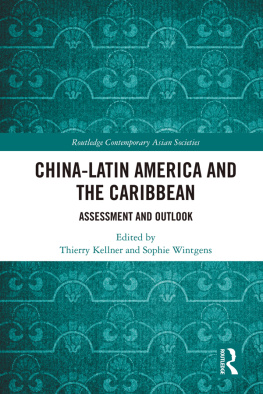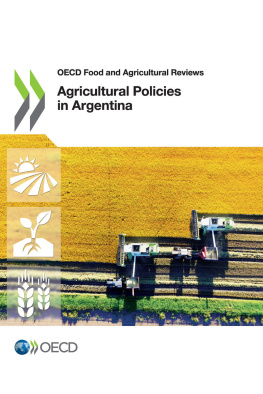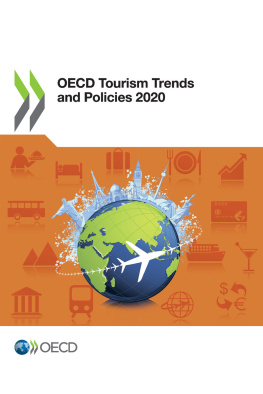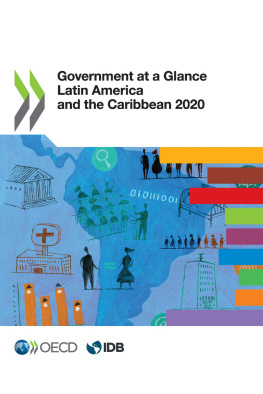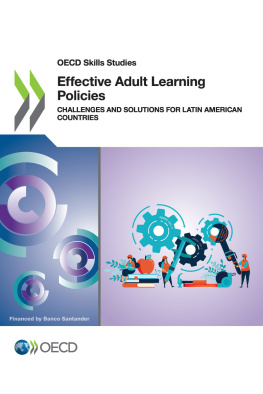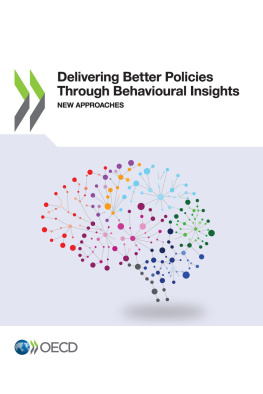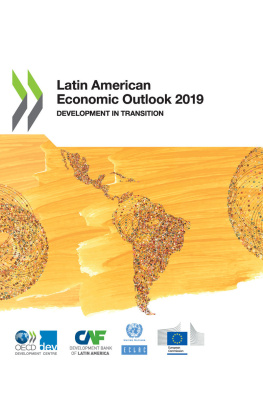OECD - Broadband Policies for Latin America and the Caribbean
Here you can read online OECD - Broadband Policies for Latin America and the Caribbean full text of the book (entire story) in english for free. Download pdf and epub, get meaning, cover and reviews about this ebook. year: 2016, publisher: OECD Publishing, genre: Politics. Description of the work, (preface) as well as reviews are available. Best literature library LitArk.com created for fans of good reading and offers a wide selection of genres:
Romance novel
Science fiction
Adventure
Detective
Science
History
Home and family
Prose
Art
Politics
Computer
Non-fiction
Religion
Business
Children
Humor
Choose a favorite category and find really read worthwhile books. Enjoy immersion in the world of imagination, feel the emotions of the characters or learn something new for yourself, make an fascinating discovery.

Broadband Policies for Latin America and the Caribbean: summary, description and annotation
We offer to read an annotation, description, summary or preface (depends on what the author of the book "Broadband Policies for Latin America and the Caribbean" wrote himself). If you haven't found the necessary information about the book — write in the comments, we will try to find it.
OECD: author's other books
Who wrote Broadband Policies for Latin America and the Caribbean? Find out the surname, the name of the author of the book and a list of all author's works by series.
Broadband Policies for Latin America and the Caribbean — read online for free the complete book (whole text) full work
Below is the text of the book, divided by pages. System saving the place of the last page read, allows you to conveniently read the book "Broadband Policies for Latin America and the Caribbean" online for free, without having to search again every time where you left off. Put a bookmark, and you can go to the page where you finished reading at any time.
Font size:
Interval:
Bookmark:
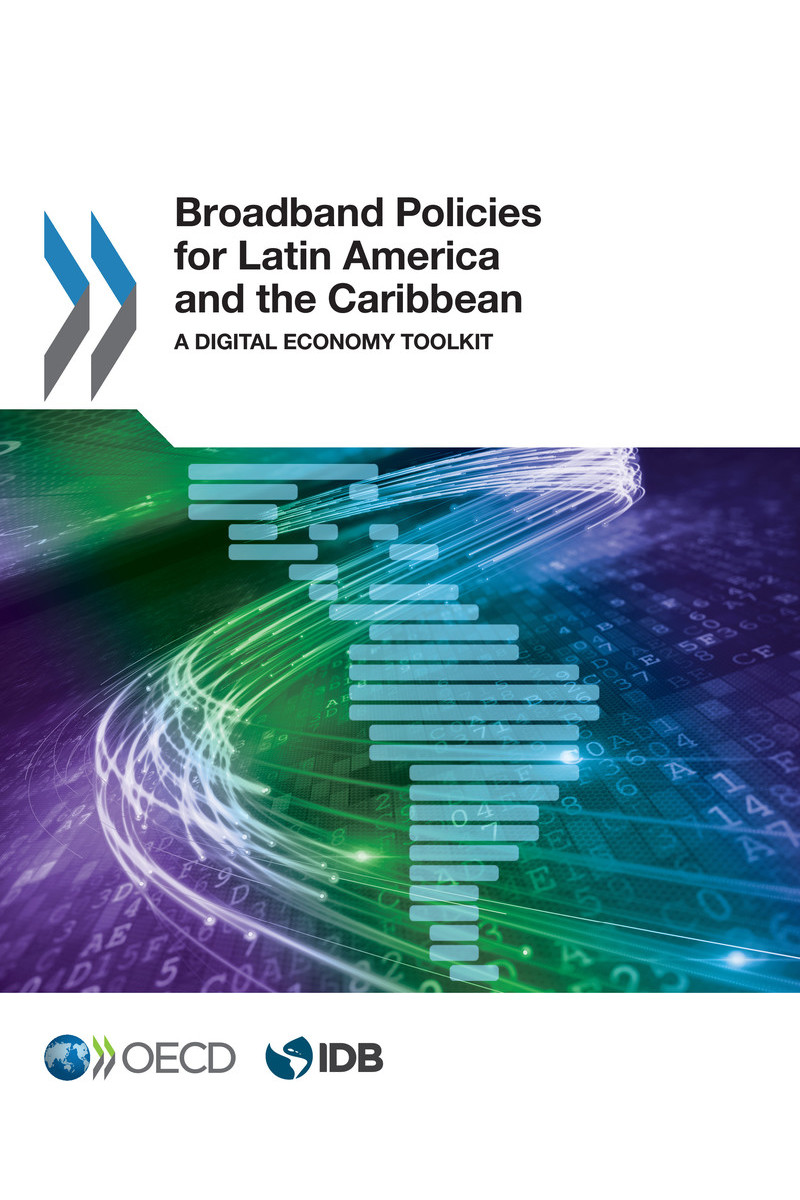
Flicitations et merci davoir tlcharg lun de nos tout nouveaux ePub en version bta.
Nous exprimentons ce nouveau format pour nos publications. En effet, mme si lePub est formidable pour des livres composs de texte linaire, le lecteur peut tre confront quelques dysfonctionnements avec les publications comportant des tableaux et des graphiques tout dpend du type de support de lecture que vous utilisez.
Afin de profiter dune exprience de lecture optimale, nous vous recommandons :
- Dutiliser la dernire version du systme dexploitation de votre support de lecture.
- De lire en orientation portrait.
- De rduire la taille de caractres si les tableaux en grand format sont difficiles lire.
Comme ce format est encore en version bta, nous aimerions recevoir vos impressions et remarques sur votre exprience de lecture, bonne ou autre, pour que nous puissions lamliorer lavenir. Dans votre message, merci de bien vouloir nous indiquer prcisment quel appareil et quel systme dexploitation vous avez utilis ainsi que le titre de la publication concerne. Vous pouvez adresser vos remarques ladresse suivante :
Merci !
Congratulations and thank-you for downloading one of our brand-new ePub-in-beta editions.
We're experimenting with this new format and, while ePub is fantastic for books with linear text, for books with charts, tables and graphs weve found some things may not work perfectly it depends on the device youre using.
So, for an optimal reading experience, we recommend:
- Using the latest version of your devices operating system.
- Reading in portrait mode.
- If large tables are tricky to read, try reducing the text size.
As this is an ePub-in-beta edition, we would be glad to receive feedback on your reading experience, good or otherwise, so we can improve for the future. When writing, please let us know which device/operating system you were using and the title of the publication. Write to:
Thank you!
OECD and IDB (2016), Broadband Policies for Latin America and the Caribbean: A Digital Economy Toolkit, OECD Publishing, Paris, http://dx.doi.org/10.1787/9789264251823-en.
Digital technologies are profoundly changing our economies and societies. Broadband networks are essential in enabling this transformation. By reducing the cost of accessing information and by expanding the means for sharing knowledge, these networks can empower people, encourage greater civic engagement and improve the delivery of public services, as well as helping to create opportunities for new goods, services, business models and jobs. Nonetheless, these opportunities come with challenges, the first of which is to ensure that everyone has access to this extraordinary tool.
The capacity of broadband to accelerate economic and social development is recognised globally. Its importance for the three pillars of development economic development, social inclusion and environmental protection was recently acknowledged by the United Nations (UN), which set a provision of universal and affordable access to the Internet in least developed countries by 2020 as one of the targets of the Sustainable Development Goals (SDGs).
We are also mindful of the UNs call for sharing knowledge and expertise in the service of the SDGs. Broadband Policies for Latin America and the Caribbean: A Digital Economy Toolkit offers a clear example of partners coming together to share good practices. In setting out some guidelines for designing a whole-of-government approach to policies, this Toolkit aims to assist countries in the region enhance their digital prospects and make progress on international, regional and national policy objectives.
Today, Latin America and the Caribbean (LAC) is experiencing an economic slowdown, but the time is ripe for both implementing much needed structural reforms that can promote sustainable growth and for designing policies that seize the benefits of the digital economy. The first challenge is making sure opportunities are more evenly spread. An estimated 300 million people in the region, half of the population, still have no access to the Internet, with the situation varying greatly between countries, income groups, and those living in rural or urban areas.
Successful broadband policies, designed to improve social inclusion, productivity and governance, can be a catalyst for expanding the digital dividends which stem from broadband access and use. Policymakers and regulators have a variety of instruments at their disposal to stimulate and encourage investment, competition and network deployment. They can also assist in making services more affordable, relevant, usable and safer for individuals and businesses.
The OECD is committed to supporting accessible and affordable broadband. This joint publication with the Inter-American Development Bank (IDB), to be presented at the Digital Economy Ministerial meeting in Cancn, Mexico, is designed to generate fruitful policy dialogue on how to achieve this goal. This will mean enlisting all stakeholders to make the most of the opportunities ahead and to tackle the evolving challenges of the digital economy to promote further social inclusion, increase productivity and enhance governance in the region. It is time to act together to put accessible, affordable broadband at the fingertips of all.

Angel Gurra, Secretary-General OECD
Broadband Policies for Latin America and the Caribbean: A Digital Economy Toolkit is the result of a partnership between the OECD and the Inter-American Development Bank (IDB). Its aim is to encourage the expansion of broadband networks and services in the region by assisting policy makers and regulators with the implementation of policies based on a coherent and whole-of-government approach. In order to do so, the publication puts forward good practices and case studies. It builds on the combined expertise of the OECD and IDB.
Font size:
Interval:
Bookmark:
Similar books «Broadband Policies for Latin America and the Caribbean»
Look at similar books to Broadband Policies for Latin America and the Caribbean. We have selected literature similar in name and meaning in the hope of providing readers with more options to find new, interesting, not yet read works.
Discussion, reviews of the book Broadband Policies for Latin America and the Caribbean and just readers' own opinions. Leave your comments, write what you think about the work, its meaning or the main characters. Specify what exactly you liked and what you didn't like, and why you think so.







